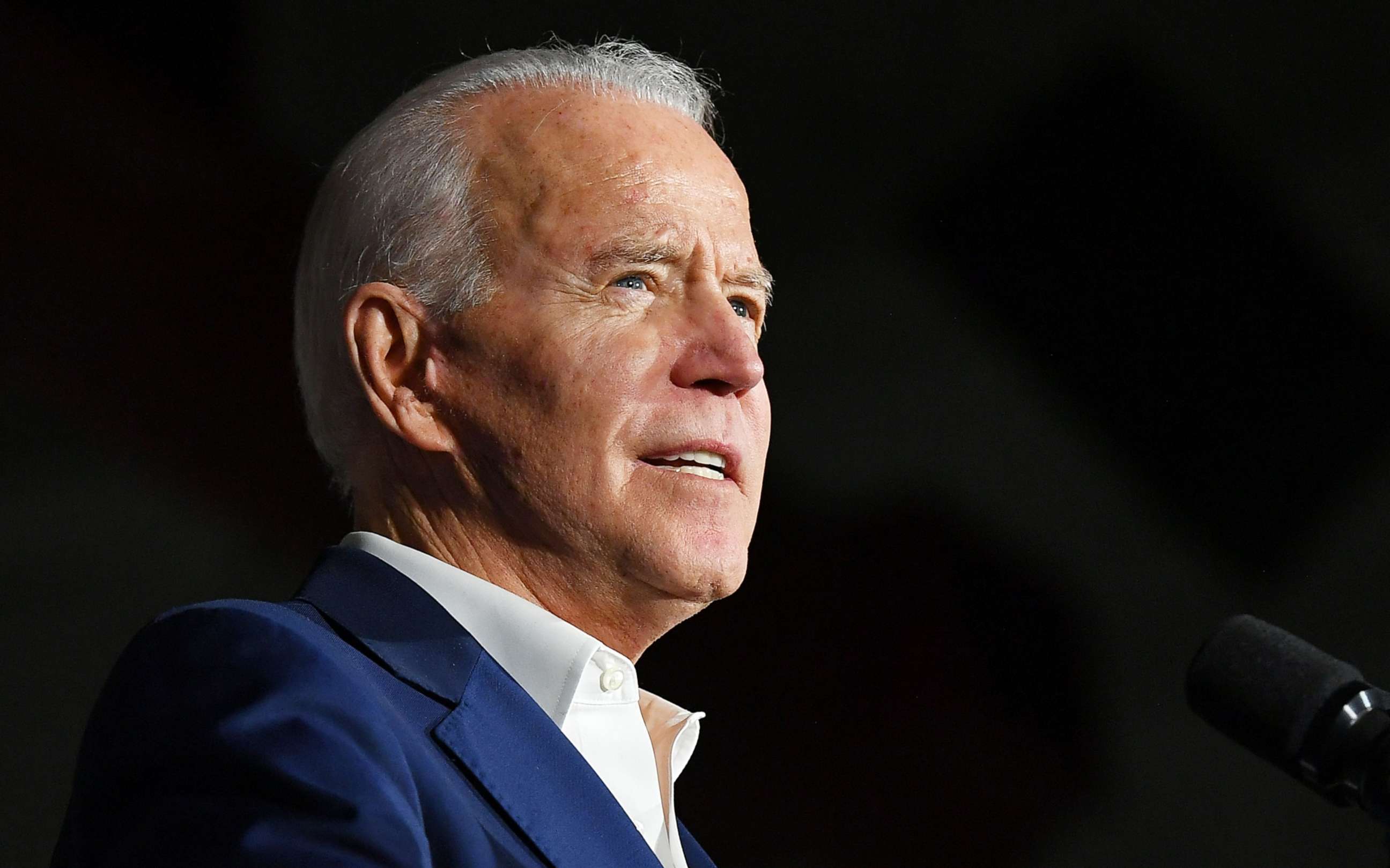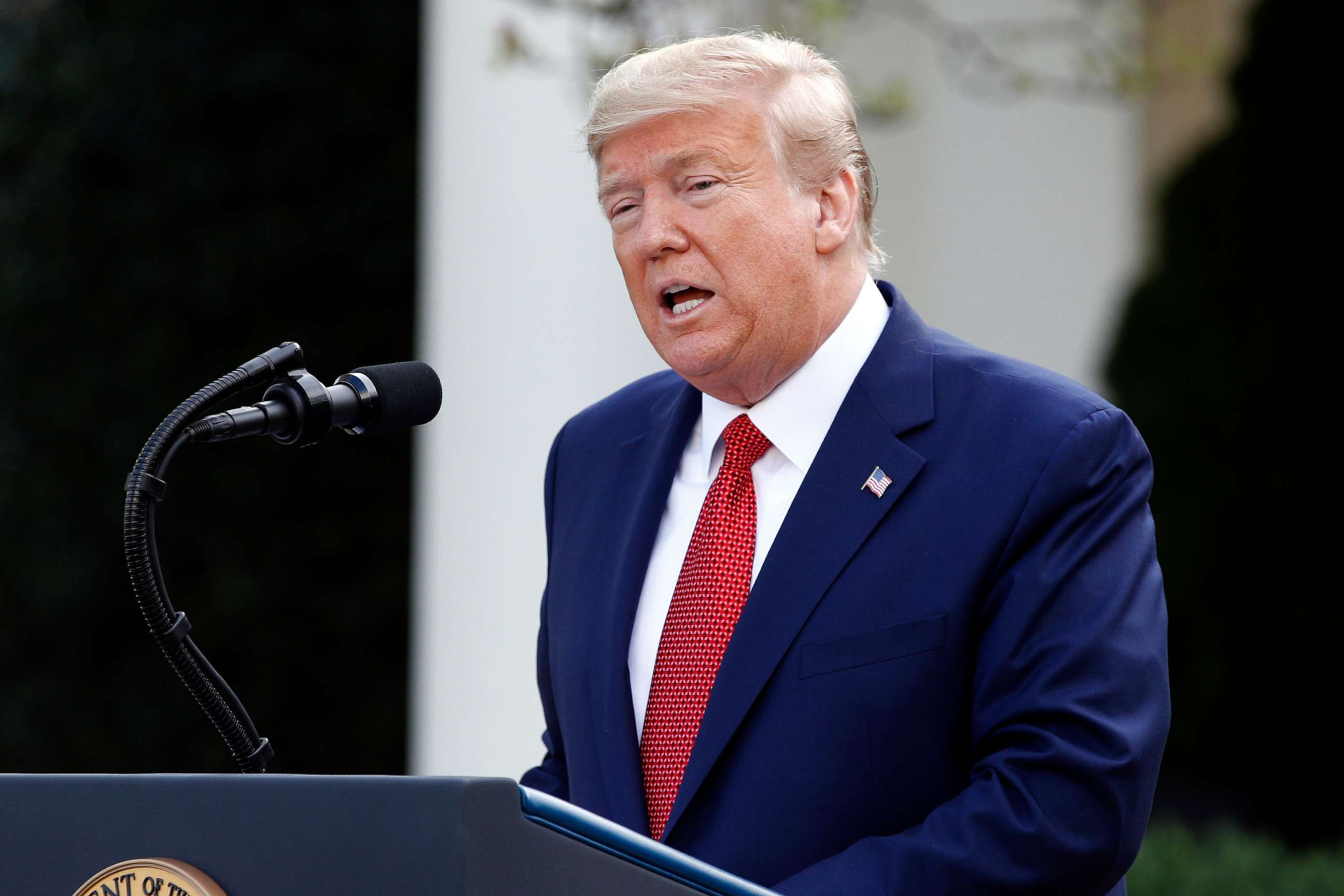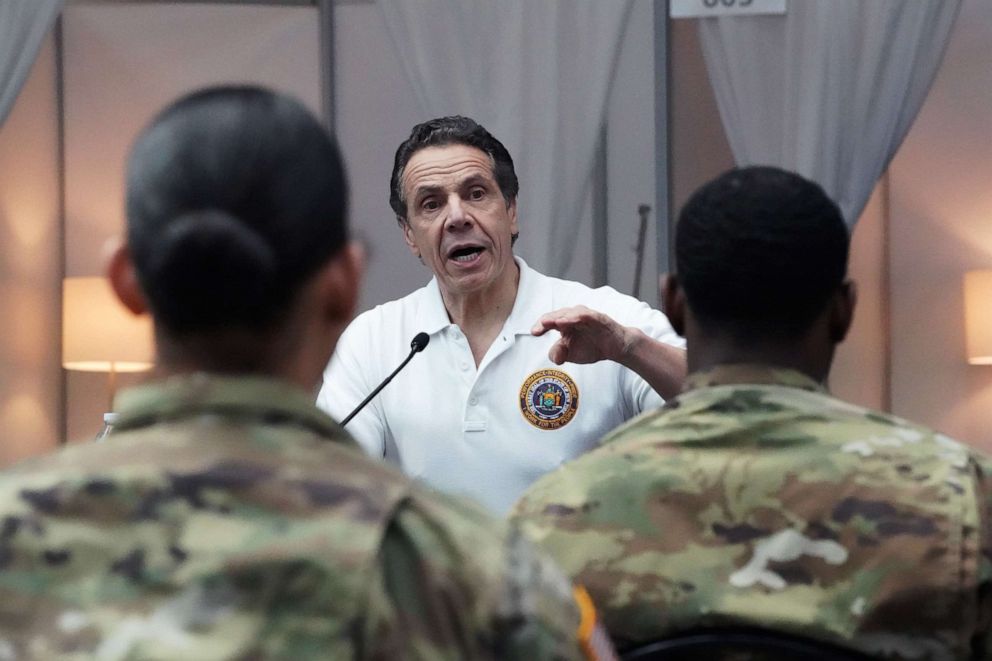The Note: Biden battles perceptions as campaign’s pause stirs concerns
Biden's hold on his party's passions appears to be lagging
The TAKE with Rick Klein
Former Vice President Joe Biden doesn't have to be worried about delegates, not that they're getting awarded much these days anyway.
But he does have to worry about perceptions. Even as he moves toward locking down the Democratic nomination, his hold on his party's passions appears to be lagging -- in ways that Sen. Bernie Sanders' team has long been warning about.

The enthusiasm gap inside the latest ABC News/Washington Post poll is perfect fodder for those with concerns about Biden's candidacy. It shows a tight race between Biden and President Donald Trump, but 53% of Trump supporters say they are "very enthusiastic" about supporting the president, compared to just 24% of Biden supporters.
Numbers like those evoke memories of 2016, and may play a role in keeping Sanders in the race during what he's now calling an "election without elections." Biden is behind where Hillary Clinton was in terms of enthusiasm four years ago, even though Biden's delegate edge over Sanders is larger than Clinton's was at the time.
This puts a sharper edge on Biden's efforts to break through in the current news environment, while he is effectively holed up in his home. Sanders has a policy-making role as well as a larger and more skilled virtual operation, while Trump has his Twitter account and the White House podium.
It may be that negative perceptions of Trump are enough to overcome Democrats' doubts over their exceedingly likely nominee. But for now, some of the available comparisons -- among presidential candidates, and some high-profile governors – may not be favorable for Biden.
The RUNDOWN with MaryAlice Parks
One month ago, President Trump told a crowd at his campaign rally in South Carolina that the fears about the coronavirus were politically-motivated and driven by media hysteria. “This is their new hoax,” he said.
Six days ago, he said he would like to see churches packed again at Easter. This weekend, with the death toll in America rising, he reversed course.

His administration extended social distancing guidelines, which were set to expire Monday, through the end of April instead.
The grim reality and heartbreaking images in his home state seemed to move him in a way that estimates from experts and anxieties from Democratic governors the last few weeks did not.
“I've been watching them bring in trailer trucks, freezer trucks, they're freezer trucks because they can't handle the bodies, there's so many of them. This is essentially in my community, in Queens, New York. I have seen things I have never seen before,” he said during a press conference Sunday night.
On CNN, the nation’s director of infectious diseases, Dr. Anthony Fauci, gave a sobering forecast when he said the pandemic could kill 100,000 to 200,000 Americans and infect millions.
The TIP with Kendall Karson
What was set to be the night with the second-biggest delegate haul of the cycle is no more. A group of states along Amtrak's northeast corridor, which together awarded a prize of 663 delegates, were scheduled to vote on April 28 -- colloquially known as the "Acela Primary." But Connecticut, Delaware, Maryland, New York, Pennsylvania and Rhode Island have all since put off their nominating contests until at least early June to safeguard voters from the risks of the coronavirus.

"I don't think it's wise to be bringing a lot of people to one location to vote. A lot of people touching one door knob, a lot of people touching one pen, whatever you call it -- device on the ballots. So, we are going to delay that, and link it to an election that was previously scheduled on June 23," New York Gov. Andrew Cuomo said Friday, announcing that his state, the last of the Acela primary states to move, would postpone its primary.
But rescheduling was, perhaps, the easy part. Now the states must attain the blessing of the Democratic National Committee, the bureaucratic overseer of the primary process, which is seeking to be flexible with state parties amid the unparalleled pandemic halting the entire 2020 campaign. For most, it will only require a nod of approval from the co-chairs of the national party's powerful Rules and Bylaws Committee, but for New York and two other states, a delay until late June is outside of the DNC's timeframe for holding primaries, which ends on June 9, and is at odds with the party rules.
A move like that could potentially result in a 50% reduction of delegates as a penalty for the second most delegate-rich state. But for now, the DNC is still sorting through that complication: "If states move beyond the June 9th window stated in our rules, the Rules and Bylaws Committee will meet to discuss and determine next steps," according to a statement from Xochitl Hinojosa, communications director for the DNC.
THE PLAYLIST
ABC News' "Start Here" podcast. Monday morning’s episode features ABC News Chief National Affairs correspondent Tom Llamas, who tells us what the government could implement in the coming days after a mass quarantine was floated for the New York area over the weekend. Then, we hear from ABC News’ Katherine Faulders, who tells us how states in the South like Florida and Louisiana are preparing for a surge of COVID-19 cases. And, ABC News’ Anne Flaherty breaks down fact vs. fiction when it comes to the Trump administration’s preparation and response to the crisis. http://apple.co/2HPocUL
WHAT YOU NEED TO KNOW TODAY
- ABC News Chief White House Correspondent Jonathan Karl appears on ABC's "The View," the day before his book, "Front Row at the Trump Show," is released.
- Members of the administration's Coronavirus Task Force hold a press briefing at 5:00 p.m.
Download the ABC News app and select "The Note" as an item of interest to receive the day's sharpest political analysis every weekday.
The Note is a daily ABC News feature that highlights the key political moments of the day ahead. Please check back Monday for the latest.





